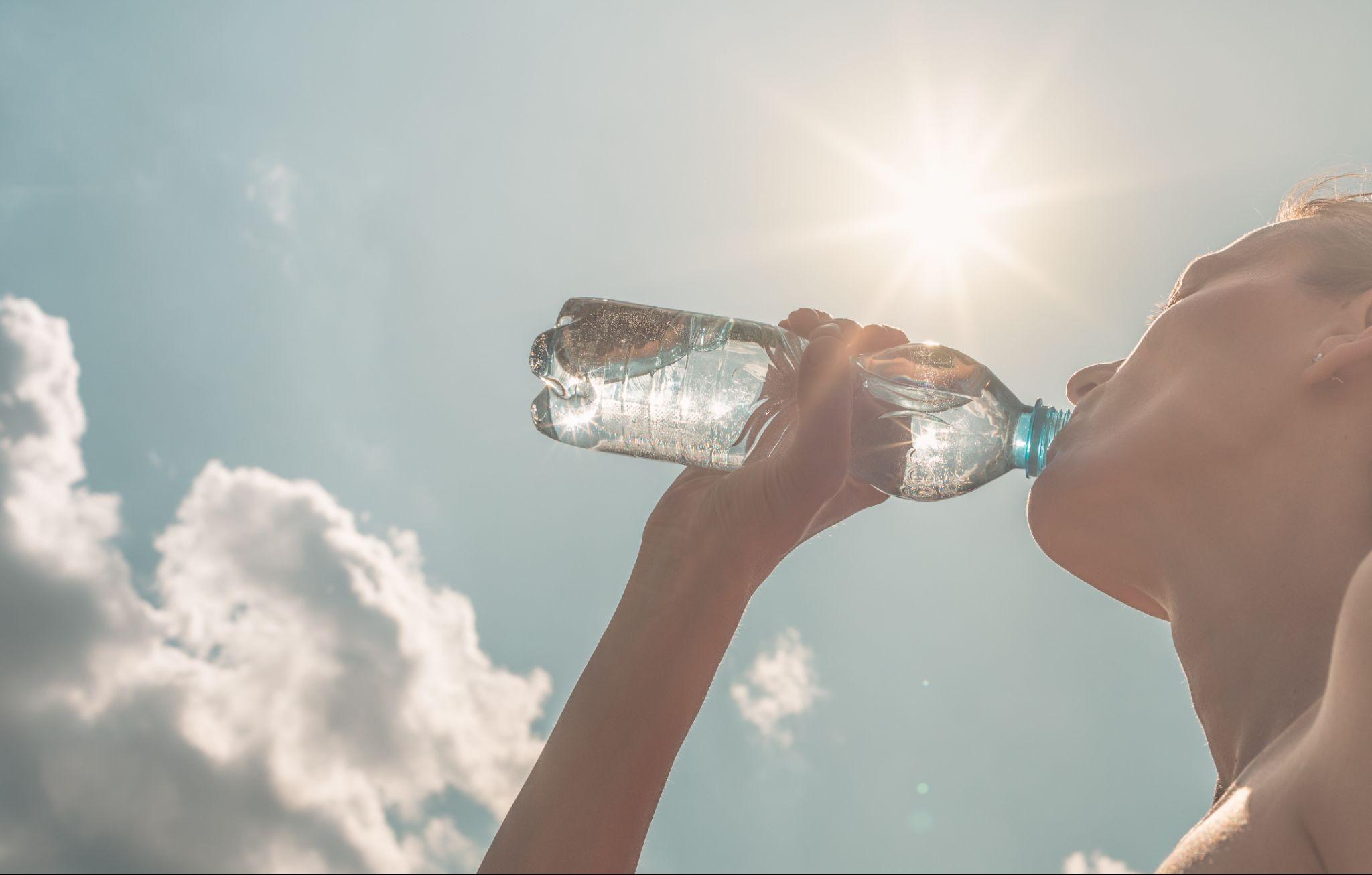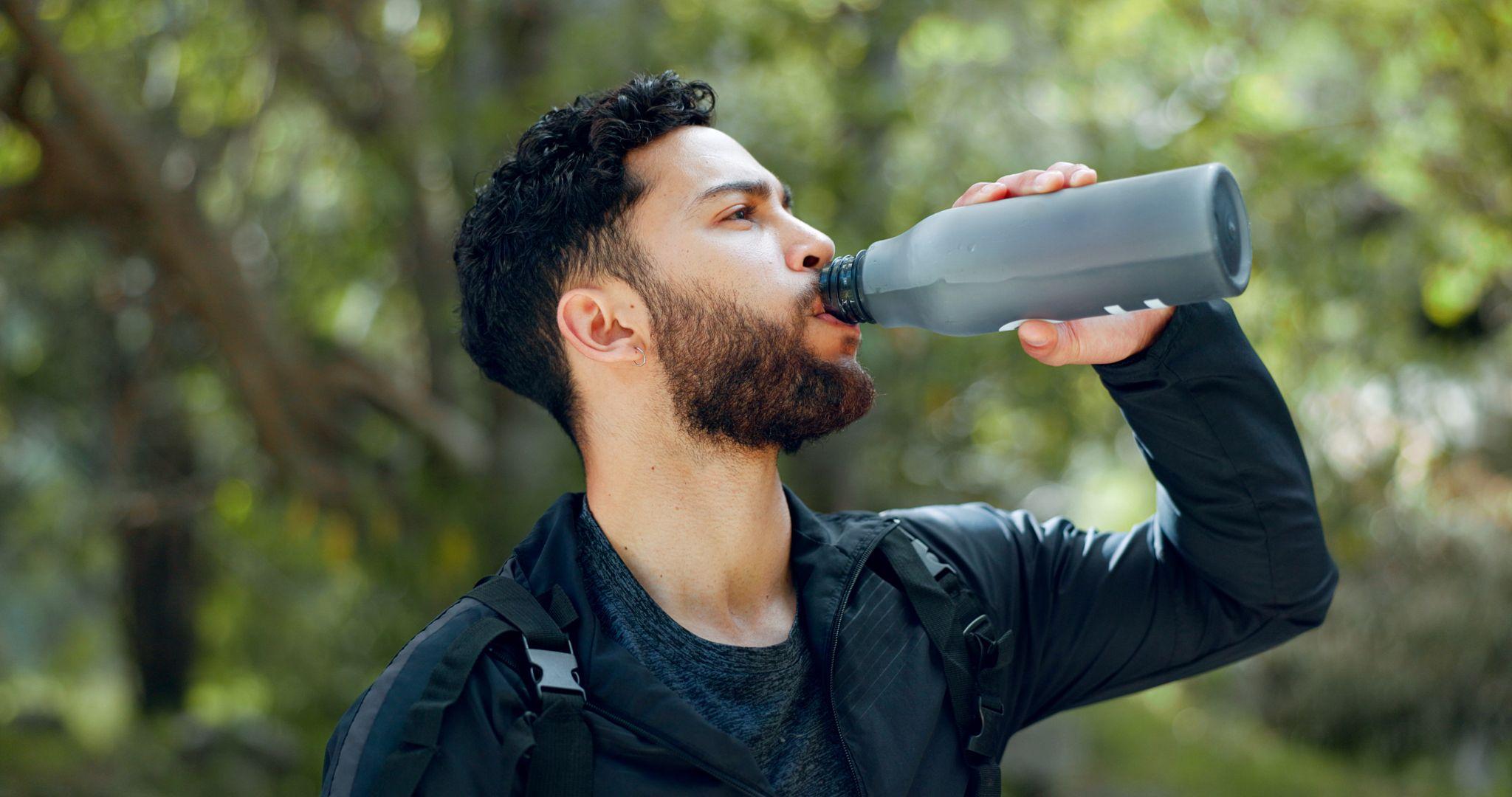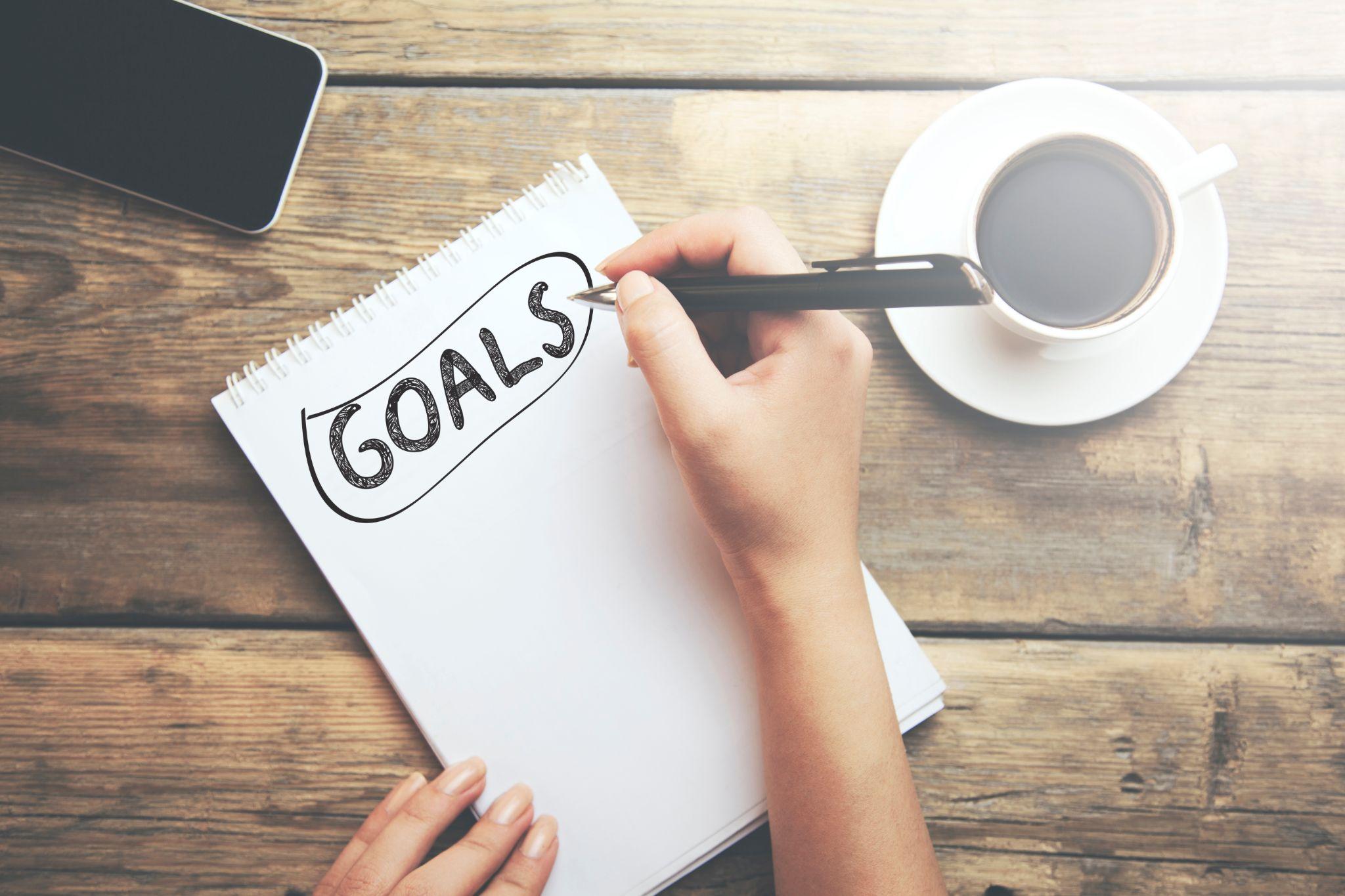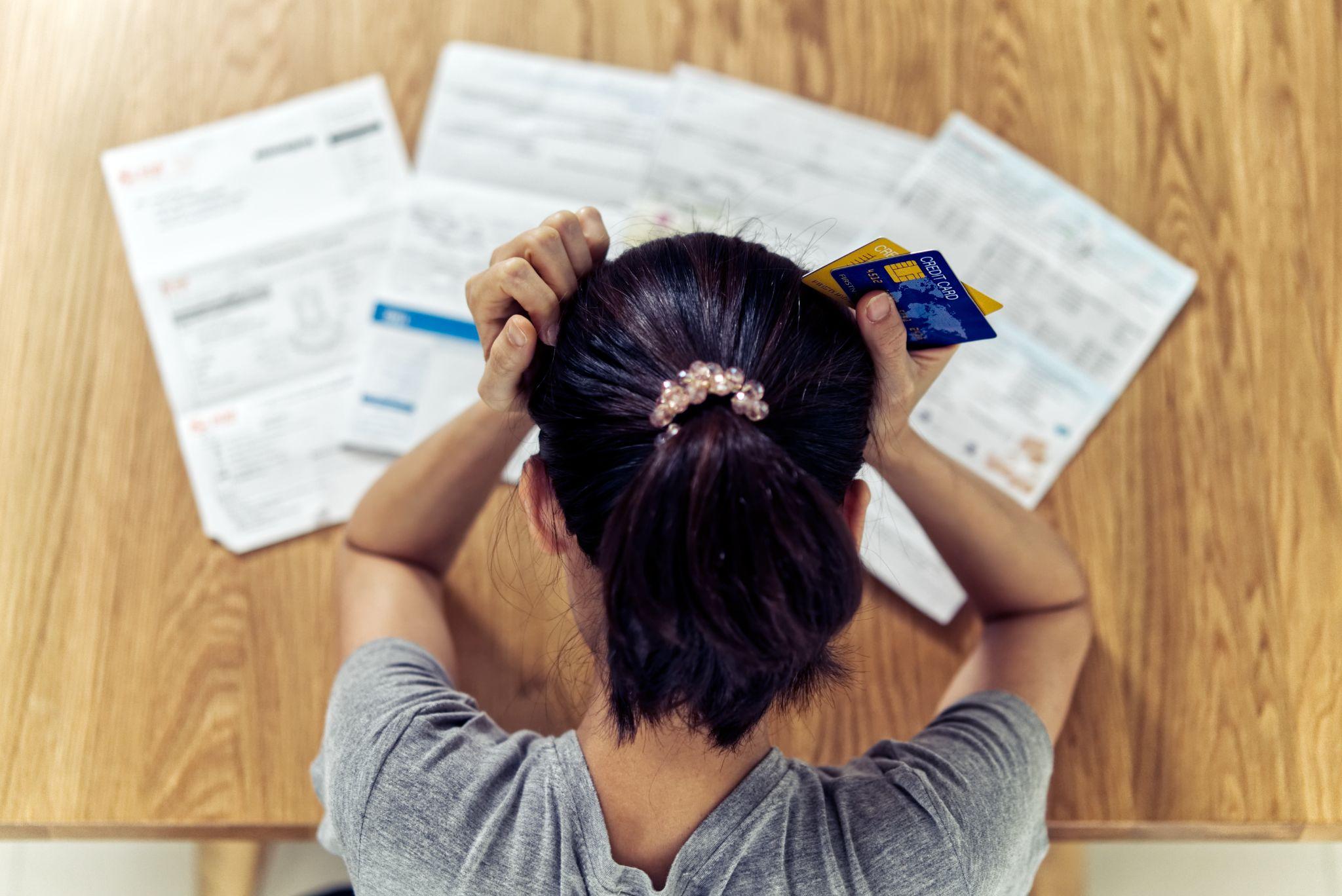
Our Addiction Resources
Navigating the world of addiction and recovery can be overwhelming. We’re here to provide clear, compassionate education and guidance. From practical advice for maintaining sobriety to informational guidance on the long-term effects of substance abuse, our content is a beacon of hope and understanding.
Our Team is Ready are ready to take your call
Call us Today!
or we can call you. Fill out form below
Our Blog

How to Explain a Rehab Stay to Kids
Talking to children about going to rehab is a sensitive and challenging task. It’s natural for parents to feel unsure about how to start or what to say, especially when the topic involves parental substance abuse.
However, children are often more aware of what’s happening around them than adults realize. When parents take the time to communicate openly, they help their children feel secure and supported during a difficult time.
Addressing this topic directly also reduces confusion and fear. Instead of leaving children to imagine the worst, explaining addiction to kids in a straightforward and age-appropriate way can help them understand that rehab is a positive step toward healing for the parent and the entire family.
The Impact of Parental Rehab on Children
When a parent decides to seek help for parental substance abuse, it affects the entire family, including children. Depending on their age and maturity level, kids might experience a range of emotions, such as sadness, fear, confusion, or even anger.
Younger children may worry about who will take care of them, while older children may feel embarrassed or even blame themselves for their parent’s struggles. Without proper communication, children might internalize these emotions, leading to long-term effects on their mental health.
On the other hand, when parents address the situation proactively, children are more likely to cope positively. Explaining that going to rehab is a way for the parent to become healthier can help children understand it as an act of love and responsibility.
Additionally, discussing the rehab process can help normalize seeking help for problems, teaching children valuable lessons about resilience and the importance of taking care of one’s health.
Preparing for the Conversation
The first step in explaining addiction to kids is finding the right time and place for the conversation. Choose a calm moment when your child isn’t distracted by other activities or emotions. A private and familiar setting, such as your living room or kitchen table, can help create a safe environment for an open discussion.
Avoid rushing the conversation. Make sure you have enough time to address your child’s questions and feelings without interruptions.
Before the conversation, consider gathering resources to help guide the discussion. Books about addiction and recovery for children, support groups, or advice from a family counselor can provide helpful language and tools.
Age-Appropriate Communication Strategies
Children of different ages process information differently, so tailoring your approach based on their developmental stage is crucial.
Toddlers and Preschoolers
For very young children, simple language and reassurances work best. They may not understand what addiction or rehab is, but they will notice their parent’s absence.
You can explain it in simple terms: “Mommy/Daddy is going to a special place to get healthy and feel better.” Reassure them that they are loved, cared for, and that someone they trust will be there for them while you’re away.
School-Aged Children
Children in this age group are more curious and may ask questions about why their parent needs to go away. Use age-appropriate explanations to introduce the concept of parental substance abuse.
For example, you might say, “Sometimes grown-ups develop habits that aren’t good for them, and they need help to stop. Rehab is a place where people learn how to make healthier choices.”
Emphasize that the decision to go to rehab is a way to help the family, and assure them that their routines, like school and activities, will remain consistent.
Teenagers
Teenagers are more likely to be aware of the situation and may have stronger opinions or emotions about it. Be prepared for direct questions and possibly even anger. It’s important to be honest and transparent while addressing their concerns. Explain how going to rehab is part of taking responsibility and that it’s a step toward improving the family dynamic.
You might say, “I’ve realized that my behavior has affected our family, and I want to do everything I can to make it better. Rehab will help me learn how to be healthier for all of us.”

3 Key Points to Cover During the Discussion
When explaining addiction to kids and discussing your rehab stay, there are a few critical topics to address:
1. What Rehab Is and Its Purpose
Explain that rehab is a place where people go to get help for problems they can’t solve alone. Use positive language, such as: “Rehab is a place that helps people learn how to live healthier lives and make better choices.”
2. Reassurance About Care and Routine
Children often worry about how your absence will affect their day-to-day lives. Reassure them that their caregivers will ensure their needs are met and that their routines, like meals, school, and bedtime, will remain the same. You can say, “While I’m away, Grandma/Uncle/Aunt will take care of you and make sure everything stays the same.”
3. Encourage Questions
Let your child know that it’s okay to ask questions or share how they feel. For example, you might say, “If you ever feel sad or have questions, you can talk to me or Grandma. We all want to help you.”
Maintaining Connection During Rehab
Staying connected while you’re in rehab is essential for maintaining your bond with your child. Depending on the rehab facility’s policies, you can stay in touch through phone calls, letters, or visits.
Discuss these options with your child and set clear expectations for how often you’ll communicate. For example, you might say, “I’ll call every Saturday so we can talk about your week.”
Creating a predictable schedule for communication can help your child feel more secure and involved during your time in rehab.
Supporting the Child’s Emotional Well-Being
Children may still struggle with the emotional impact of parental substance abuse and your absence during rehab. Watch for signs of distress, such as changes in their behavior, mood, or academic performance. If you notice anything concerning, consider enlisting the help of a counselor or therapist who specializes in working with children.
Support groups for children of parents in rehab can also be beneficial. These groups provide a safe space for kids to share their feelings and meet others who are going through similar experiences.
Preparing for Reintegration Post-Rehab
When you return from rehab, your family will likely need to adjust to new routines and dynamics. Talk to your child about what to expect and emphasize that recovery is an ongoing process. For example, you might explain, “I’ve learned a lot about how to make better choices, and we’ll keep working as a family to support each other.”
Encourage open communication and let your child know they can come to you with any concerns or questions as the family adjusts. This transparency helps rebuild trust and strengthens your bond.
Support Your Family Through Rehab With Lumina Recovery
Discussing a rehab stay with your child is a challenging but essential step in fostering trust and emotional stability. By using age-appropriate communication strategies and maintaining open dialogue, you can reassure your child and help them feel secure during this transition.
At Lumina Recovery, we offer family therapy to support loved ones in understanding and navigating addiction together, and residential inpatient programs to provide holistic care during your recovery journey.
If you’re ready to take the next step toward recovery while supporting your family, contact Lumina Recovery today.

Hydration in Withdrawal and Recovery: Importance and Tips
Hydration is a vital aspect of health that becomes even more critical during withdrawal and recovery from addiction. The process of withdrawing from substances places immense stress on the body, increasing its need for water to function optimally.
During this period, dehydration can amplify withdrawal symptoms, hinder physical recovery, and strain mental well-being. Understanding how to maintain hydration and why it matters can make a significant difference in navigating recovery.
The Role of Hydration in the Body
Water is the cornerstone of life, essential for nearly every bodily function. Here are some key roles it plays:
Nutrient Transport: Water carries nutrients, including oxygen, vitamins, and minerals, to cells, ensuring they function correctly.
Temperature Regulation: Hydration helps regulate body temperature, especially during stress, fever, or physical exertion—conditions often experienced during withdrawal.
Waste Elimination: The kidneys and digestive system rely on water to filter toxins and remove waste products from the body.
During addiction recovery, the body works overtime to repair itself and expel the harmful substances accumulated during substance use. Staying hydrated supports these processes, enabling the body to heal more efficiently.
Impact of Dehydration on Withdrawal Symptoms
Withdrawal is a physically and psychologically difficult process, and dehydration can intensify the experience. Common withdrawal symptoms such as headaches, fatigue, and irritability are often worsened by insufficient hydration. Here’s how dehydration exacerbates these symptoms:
- Dehydration reduces blood flow and oxygen delivery to the brain, often leading to severe headaches, especially during dehydration from alcohol withdrawal.
- The body needs adequate hydration to produce energy. Dehydration during withdrawal can cause extreme fatigue and lethargy, making it harder to cope with the recovery process.
- Dehydration impacts hormone balance and brain function, heightening mood swings and irritability.
By prioritizing hydration, individuals can mitigate some of these challenges and make the withdrawal process more manageable.
Substance-Specific Dehydration Effects
Different substances affect hydration levels in unique ways.
Alcohol is a potent diuretic, meaning it increases urine production and leads to fluid loss. This can result in severe dehydration, especially during withdrawal. Alcohol withdrawal and dehydration often go hand in hand, as the body struggles to regain balance after prolonged alcohol use.
Stimulants like cocaine, methamphetamine, and ecstasy increase physical activity and body temperature, leading to excessive sweating and fluid loss.
Opioids can slow digestive processes, causing constipation and fluid imbalances.
While cannabis doesn’t directly dehydrate the body, it can cause dry mouth and reduce the urge to drink water.
Understanding these effects is crucial for identifying specific hydration needs during recovery.
Benefits of Proper Hydration in Recovery
Staying hydrated during withdrawal and recovery provides numerous physical and mental benefits. These include:
Improved Mood: Proper hydration helps regulate hormones and supports emotional stability, countering the mood swings common during withdrawal.
Enhanced Energy Levels: Water is essential for metabolic processes that produce energy, which is especially needed as the body heals.
Better Cognitive Function: Hydration supports brain health, improving focus, memory, and decision-making—key elements for recovery success.
Support for Physical Healing: Proper hydration aids in tissue repair, immune function, and overall health, providing a solid foundation for long-term recovery.

Practical Hydration Tips
Maintaining hydration during withdrawal and recovery doesn’t have to be complicated. Here are some practical tips on how to prevent dehydration:
Set a daily goal. Aim for at least 2–3 liters of water, adjusting for activity level, climate, and individual needs.
Start your day hydrated. Drink a glass of water first thing in the morning to replenish fluids lost overnight.
Carry a reusable bottle. Having water readily available encourages regular sipping throughout the day.
Incorporate hydrating foods. Nutritious fruits and vegetables like cucumbers, oranges, watermelon, and celery are excellent sources of water.
Balance electrolytes. Use electrolyte-rich drinks, such as coconut water or sports beverages, to maintain electrolyte balance, especially during periods of sweating or nausea.
Set reminders. Use alarms or apps on your phone to remind yourself to drink water regularly.
By following these strategies, you can learn how to prevent dehydration effectively during recovery.
Addressing Common Hydration Myths
Misinformation about hydration can lead to confusion, particularly during recovery. Let’s debunk some common myths:
All fluids hydrate equally. This isn’t true. Beverages like coffee and alcohol have diuretic effects, which can dehydrate rather than hydrate. Water remains the best option for staying hydrated.
You can overhydrate easily. While overhydration (hyponatremia) is possible, it’s rare and typically occurs only under extreme circumstances, such as drinking excessive water in a short period. Moderation is key.
Feeling thirsty is the best indicator of hydration. Thirst is actually a late sign of dehydration. To stay ahead, drink water consistently throughout the day.
Dispelling these myths empowers individuals to make informed decisions about hydration.
Focus on Alcohol Withdrawal and Dehydration
It’s important to note that the withdrawal process from alcohol should be done under the guidance of a medical professional. Alcohol withdrawal and dehydration present unique challenges during recovery. Alcohol causes the body to lose fluids rapidly, leading to a state of dehydration that can worsen withdrawal symptoms like headaches, nausea, and irritability. During dehydration from alcohol withdrawal, the body may also struggle to regulate temperature and eliminate toxins efficiently.
To combat these effects, it’s important to:
- Drink small sips of water frequently if nausea is present.
- Include electrolyte-replenishing drinks to restore balance.
- Avoid caffeinated beverages, which can exacerbate dehydration.
Staying hydrated not only alleviates withdrawal symptoms but also supports the body’s ability to heal from alcohol-related damage.
Start Healing Today With Lumina Recovery
Hydration is a foundational aspect of withdrawal and recovery, supporting both physical and mental healing. By staying properly hydrated, you can reduce withdrawal symptoms, improve your overall well-being, and set the stage for a successful recovery journey.
At Lumina Recovery, our detox program ensures that clients are safely supported through the critical first stages of withdrawal, while residential inpatient treatment provides comprehensive care.
If you’re ready to prioritize your health and recovery, reach out today to learn how we can help. Take the first step toward a healthier, brighter future.

The Connection Between Disability & Addiction
Disability and addiction are significant issues affecting millions of people worldwide. When these challenges intersect, they create a unique set of problems that can compound physical, emotional, and social difficulties.
Understanding the connection between addiction and disability is critical to ensuring that those affected receive appropriate care and support.
Defining Disability and Addiction
Disability refers to physical, mental, intellectual, or sensory impairments that substantially limit one or more major life activities. Disabilities can be congenital (present at birth) or acquired through injury, illness, or aging. Examples include mobility challenges, chronic illnesses like multiple sclerosis, mental health disorders, and sensory impairments like hearing or vision loss.
Addiction, or substance use disorder (SUD), is a chronic condition characterized by compulsive substance use despite harmful consequences. It includes dependencies on alcohol, prescription medications, and illicit drugs. Addiction impacts brain function and behavior, often requiring medical intervention and long-term support for recovery.
The interplay between disability and substance abuse is complex. Disabilities often introduce unique challenges—such as chronic pain or social isolation—that may increase the risk of addiction.
Prevalence of Substance Use Among Individuals with Disabilities
Research consistently shows that individuals with disabilities face a higher risk of developing substance use disorders. According to the Centers for Disease Control and Prevention (CDC), individuals with disabilities are significantly more likely to experience substance use disorders than those without disabilities. For example, one study found that adults with disabilities were nearly twice as likely to report illicit drug use.1
This disparity highlights the need for targeted interventions. The prevalence of disability substance abuse can vary based on factors like age, type of disability, and socioeconomic status. For instance, individuals with chronic pain conditions may be particularly vulnerable to opioid addiction, while those with mental health disorders face an increased risk of self-medicating with alcohol or drugs.
4 Factors Contributing to Increased Risk
The connection between addiction and disability can be attributed to several overlapping factors:
1. Chronic Pain and Self-Medication
Chronic pain is a common experience for individuals with physical disabilities. Prescription medications, particularly opioids, are often used to manage this pain. Unfortunately, these medications carry a high risk of dependency. In many cases, individuals turn to illicit substances when prescriptions are no longer available, exacerbating the problem of substance abuse and disability.
2. Mental Health Challenges
Mental health disorders, such as depression and anxiety, frequently co-occur with disabilities. These conditions can lead individuals to misuse substances as a way to cope with emotional distress. This dual diagnosis of disability and substance abuse complicates treatment, as both conditions must be addressed simultaneously.
3. Social Isolation and Stigma
People with disabilities often face societal stigma and discrimination, which can result in social isolation. The lack of supportive relationships and community resources may lead some individuals to use substances as a form of escape or self-soothing.
4. Accessibility of Healthcare Services
Many individuals with disabilities face significant barriers to accessing healthcare. These may include physical inaccessibility, lack of transportation, financial constraints, or healthcare providers’ lack of understanding of the unique needs of individuals with disabilities. Without adequate support, the risk of disability substance abuse increases.
Impact of Addiction on Individuals with Disabilities
Addiction can have devastating effects on individuals with disabilities, compounding existing challenges and creating new ones. The impacts are far-reaching and affect physical health, mental well-being, and social stability.
Substance use often worsens existing health conditions. For example, alcohol misuse can exacerbate liver disease, while drug use can interfere with medications prescribed for chronic illnesses. The intersection of disability and substance abuse creates a vicious cycle that undermines physical health and quality of life.
Addiction further complicates mental health challenges, such as anxiety, depression, or post-traumatic stress disorder (PTSD). The psychological toll of addiction and disability can lead to feelings of hopelessness and make recovery seem unattainable.
Individuals struggling with both addiction and a disability may face difficulty maintaining employment, relationships, and financial stability. The stigma associated with both conditions can lead to further isolation and reduced access to social support systems.

Barriers to Treatment
Despite the urgent need for intervention, individuals with disabilities face numerous barriers to accessing effective treatment for addiction:
Physical Accessibility
Many treatment facilities are not designed to accommodate individuals with mobility impairments. Steps, narrow hallways, and inaccessible bathrooms can deter people from seeking help.
Communication Challenges
For individuals with sensory impairments, such as hearing or vision loss, communication with healthcare providers can be a significant obstacle. This often results in a lack of personalized and effective care.
Healthcare Provider Awareness
Healthcare professionals may not be adequately trained to address the unique needs of individuals with disabilities. This lack of awareness can lead to misdiagnoses, inadequate treatment plans, or dismissive attitudes.
3 Effective Treatment Approaches
Addressing disability substance abuse requires a comprehensive approach tailored to the individual’s needs. Some of the most effective strategies include:
1. Integrated Care Models
Integrated care combines addiction treatment with disability-focused support, addressing both issues simultaneously. For example, physical therapy for mobility impairments may be offered alongside counseling for substance use.
2. Tailored Rehabilitation Programs
Customized treatment plans are essential for individuals with disabilities. This might include adaptive exercise programs, assistive technologies, or specialized counseling approaches.
3. Support Systems
Family, friends, and community organizations play a critical role in recovery. Peer support groups and disability advocacy organizations can provide much-needed encouragement and practical resources.
Overcoming Challenges of Disability and Addiction With Lumina Recovery
Understanding the complex relationship between disability and addiction is crucial to addressing the unique challenges faced by individuals in this intersection.
At Lumina Recovery, we offer dual diagnosis programs to address co-occurring conditions that are often linked to addiction, as well as integrated therapy options to create a personalized, holistic approach to recovery.
If you or someone you love is struggling with the challenges of disability substance abuse, reach out today to learn how we can help.
Source:

What Is S.M.A.R.T. Goal-Setting in Recovery?
What is S.M.A.R.T. goal-setting, and why does it matter in recovery? S.M.A.R.T. is an acronym for specific, measurable, achievable, relevant, and time-bound. This structured approach is widely used for setting goals in many areas of life, including addiction recovery, because it offers a clear and focused framework.
Creating a S.M.A.R.T. goal involves breaking down larger aspirations into defined objectives that can be tracked, making it easier to achieve the goal. Goal-setting is a major part of a successful recovery, helping individuals focus on short-term and long-term goals that promote healthier behaviors and sustained sobriety.
Breakdown of S.M.A.R.T. Components
S – Specific
When setting S.M.A.R.T. goals, being specific means clearly defining your objectives. Vague or broad goals can lead to confusion or lack of direction. A specific S.M.A.R.T. goal answers questions like who, what, where, and why.
For example, instead of saying, “I want to be sober,” a more specific goal would be, “I will attend three addiction recovery meetings per week.” This level of clarity keeps you focused on what needs to be done.
M – Measurable
Measurable S.M.A.R.T. goals allow you to track progress and see how close you are to achieving the goal. Measuring progress in recovery can be done through milestones like the number of days sober, attending a set number of support group meetings, or completing specific therapy sessions.
For instance, a measurable S.M.A.R.T. goal might be, “I will attend three support group meetings per week for the next month.” By having measurable criteria, you can assess your progress and adjust as needed.
A – Achievable
While setting S.M.A.R.T. goals, it is important to ensure they are realistic and achievable. Goals should challenge you but also be within reach. If your goals are too lofty, you may feel discouraged if you fall short.
For example, setting a goal like “I will never have another craving” may be unrealistic. Instead, you might write S.M.A.R.T. goals such as “I will practice coping techniques when I feel cravings.” Achievable goals build confidence and momentum.
R – Relevant
A relevant goal is one that aligns with your overall motivations and personal recovery journey. Recovery is deeply personal, so it is essential to set goals that resonate with your specific challenges and values.
For example, a goal to repair damaged relationships with family may be relevant to your recovery process. The key is to ensure that goals are meaningful and tied to what truly matters to you.
T – Time-Bound
Setting a time frame for your goals is critical to creating a sense of urgency and accountability. Time-bound goals include specific deadlines or milestones to measure progress over a defined period.
For example, “I will attend therapy sessions twice a week for the next six months.” The time frame creates a structure for measuring your journey and allows you to celebrate accomplishments as they occur.
3 Benefits of S.M.A.R.T. Goals in Recovery
- Enhances accountability and motivation. When you set goals using the S.M.A.R.T. framework, you are better able to track progress and hold yourself accountable. Writing S.M.A.R.T. goals provide a clear roadmap that keeps you motivated to stay on track. Knowing you have measurable milestones increases the likelihood of success.
- Provides a structured plan for personal growth. The structured nature of S.M.A.R.T. goals breaks complex challenges into manageable steps. For example, if your long-term goal is to rebuild your career, you can start by setting a short-term goal like updating your resume or attending a networking event. This structure helps ensure steady progress over time.
- Builds resilience and focus. Achieving specific, measurable, achievable, relevant, and time-bound goals builds confidence and resilience. Each success reinforces a positive mindset and encourages continued growth. This focus helps prevent distractions and setbacks from derailing your progress.
Personalizing S.M.A.R.T. Goals
To make your S.M.A.R.T. goals for addiction recovery meaningful, tailor them to your unique needs and recovery journey. Some may focus on mental health, while others prioritize physical health, relationships, or career growth.
For example, you may decide to set goals that help improve communication skills with loved ones or increase sales in a business you are involved in as a way of finding purpose and stability. Remember, relevant and time-bound goals should reflect what is most important to you.

Real-World S.M.A.R.T. Goal Examples
To successfully implement the S.M.A.R.T. framework, it’s important to create goals that address specific areas of personal growth and recovery, such as improving health, building new habits, or maintaining sobriety. Here are some examples that demonstrate how to set and achieve meaningful objectives:
Specific: “I will attend a support group meeting every Wednesday at 7 PM.”
Measurable: “I will practice a mindfulness activity, such as meditation or journaling, for 15 minutes every day over the next month.”
Achievable: “I will replace evening drinking with a 30-minute walk.”
Relevant: “I will focus on improving my health to support my recovery.”
Time-bound: “I will achieve this within the next 30 days.”
Common Challenges and Overcoming Them
Setting S.M.A.R.T. goals in recovery is not without its challenges. One common difficulty is setting overly ambitious goals, which can lead to frustration and setbacks. Breaking larger goals into smaller, manageable steps can make them more achievable and less overwhelming.
A lack of motivation can also pose a challenge, but engaging with peers, mentors, or support groups can reignite inspiration and help maintain focus.
Additionally, setbacks are a natural part of any recovery journey—instead of viewing them as failures, it is important to treat them as learning opportunities, using them to reassess and adjust goals as needed. This resilience fosters continued growth and progress toward long-term success.
Transform Your Recovery Goals With Lumina Recovery
Using S.M.A.R.T. goals in recovery empowers individuals to focus on specific, measurable, achievable, relevant, and time-bound objectives. By breaking down goals into actionable steps, you can track progress, build resilience, and maintain motivation for both short-term and long-term success.
At Lumina Recovery, our specialized programs and dual diagnosis treatment for co-occurring conditions align with the S.M.A.R.T. framework to support lasting recovery and personal growth.
Ready to take control of your recovery journey? Contact us today to learn how we can help you set and achieve meaningful goals.

How Financial Stress Can Impact Addiction and Recovery
Financial stress is a heavy burden that can trigger or worsen substance abuse and addiction. Struggles with debt, job loss, or basic living expenses can push people toward harmful coping mechanisms, including drugs and alcohol.
In recovery, the presence of money worries can be a formidable barrier to stability and well-being. Addressing financial stress during recovery is a crucial step in achieving lasting sobriety and rebuilding a healthier life.
The Relationship Between Financial Stress and Addiction
The connection between financial stress and addiction is often a two-way street. For many, financial stress—including overwhelming debt, low income, or job instability—creates emotional distress that may lead to substance abuse as a form of relief or escape.
This can become a dangerous coping mechanism, as substances may offer temporary solace but often exacerbate underlying issues. Financial stress and mental health problems, such as anxiety and depression, can become deeply intertwined, pushing individuals toward addictive behaviors.
Conversely, addiction itself frequently worsens a person’s financial situation. As substance use escalates, people may spend increasing amounts of money to feed their addiction. This can lead to missed work, job termination, legal troubles, and spiraling debt.
Individuals struggling with substance use disorders are at greater risk of financial instability and unemployment compared to the general population.1
Breaking this destructive loop requires a multifaceted approach, addressing both the financial stress and substance use together. This is where support, treatment, and a commitment to recovery can offer a way out.
Mental Health, Financial Stress, and Addiction
The link between addiction-related financial stress and mental health struggles creates what many professionals call a “triple threat.” When individuals are stressed about money, they may experience symptoms of anxiety, depression, or hopelessness.
These mental health challenges can amplify substance use, creating a cycle that is difficult to break. Financial stress and mental health problems are often interwoven, making it essential to address both in the recovery process.
Psychologically, financial stress can be overwhelming. Worrying about bills, debts, or basic needs can lead to feelings of panic, low self-worth, and even suicidal thoughts. Such feelings often push individuals to seek relief from substances, compounding the problem.
Breaking the cycle of addiction-related financial stress requires targeted interventions that address not just substance use but the root causes of financial strain and its impact on mental health.
How to Manage Financial Stress During Recovery
Managing financial stress during recovery requires a structured approach that combines practical strategies and long-term goals to create financial stability. Here’s a guide on how to deal with financial stress and regain control over your finances while focusing on your recovery journey.
1. Assess Your Personal Finances
Start by taking a detailed look at your income and expenses. List all sources of income, including wages, benefits, or support payments. Track every expense to understand where your money is going each month. This step provides a clear picture of your financial situation and helps identify areas that need attention.
2. Create a Realistic Budget
Develop a monthly budget that outlines your spending and saving goals. Prioritize essential needs such as housing, food, transportation, and healthcare, while minimizing discretionary spending. Budgeting tools and apps can simplify this process, making it easier to stick to your plan and track progress over time.
3. Identify and Cut Unnecessary Expenses
Analyze your spending habits and identify unnecessary expenses. This may include reducing dining out, canceling subscriptions, or choosing more cost-effective alternatives. Redirecting these savings toward debt repayment or building an emergency fund can provide a sense of financial security.
4. Set Achievable Financial Goals
Establish short-term and long-term financial goals to give yourself a sense of direction and motivation. These goals may include building an emergency fund, paying off debt, improving credit, or saving for future needs. Start with realistic milestones that are easy to achieve and gradually build from there.
5. Seek Professional Financial Counseling
Professional guidance can make a significant difference in managing addiction-related financial stress. Financial counselors can offer advice on debt repayment strategies, credit repair, and financial literacy, helping you regain control over your financial future.

Getting Help for Financial Stress and Addiction
Overcoming the combined challenges of money and stress starts with seeking appropriate support. There are several steps individuals can take to regain stability and improve their overall well-being:
1. Engage with Comprehensive Addiction Treatment Programs
Specialized programs that offer dual diagnosis treatment can address both substance use and co-occurring mental health issues, such as anxiety, depression, or stress triggered by financial difficulties. By treating underlying mental health concerns, these programs help break the link between financial stress and substance use.
2. Seek Financial Counseling
Financial counselors or non-profit credit counseling services provide guidance tailored to your unique financial circumstances. They can assist with debt consolidation, budgeting, and credit repair, offering relief from money-related stressors and helping individuals regain control over their finances.
3. Build a Support Network
Engaging with community support groups, whether for addiction or financial challenges, can reduce feelings of isolation. Peers who understand your struggles can offer empathy, share strategies, and motivate you to stay committed to recovery.
4. Adopt Stress-Reduction Techniques
Mindfulness, meditation, and other holistic approaches can significantly reduce the impact of financial stress. By improving your mental resilience, you can better cope with money issues without turning to substances.
Addressing financial stress and addiction is a journey that requires commitment and a supportive network.
Take Control of Financial Stress and Recovery With Lumina Recovery
Financial stress can create challenges in addiction recovery, but with the right support, it’s possible to break free from the cycle of money worries and substance use.
At Lumina Recovery, we provide dual diagnosis treatment for individuals managing addiction and financial-stress-related mental health challenges, as well as therapy services to help clients develop practical skills and resilience for managing stress.
If financial strain is impacting your recovery journey, reach out to Lumina Recovery today for compassionate, comprehensive support.
Source:

Galaxy Gas Abuse: What You Need to Know
The misuse of nitrous oxide, often referred to as “Galaxy Gas” on social media, has become a significant public health concern. Galaxy Gas refers both to a specific brand and a general term for nitrous oxide products.
According to the 2023 National Survey on Drug Use and Health, more than 13 million Americans have misused nitrous oxide in their lifetimes.1
The substance, once primarily known for its medical and culinary applications, has gained widespread attention online, especially among younger demographics, sparking renewed concern over the health risks and accessibility of nitrous oxide.
What Is Galaxy Gas?
Galaxy Gas is a brand of nitrous oxide marketed as whipped cream chargers, packaged in colorful canisters with flavors like strawberry cream and vanilla cupcake.
While intended for culinary use, the brand’s name has taken on a broader meaning, becoming a popular term for nitrous oxide products on social media. Galaxy Gas and similar products appear in countless videos showing individuals, often young people, inhaling the gas to get high.
This normalization of nitrous oxide misuse has raised alarm due to the potentially dangerous consequences associated with its recreational use.
Galaxy Gas Abuse: Rising Trends and Methods
The rise of Galaxy Gas abuse represents a troubling trend fueled largely by social media exposure and clever marketing. Though nitrous oxide has been used recreationally for decades, its modern branding and online presence have made it more accessible and appealing than ever.
The colorful, flavored canisters marketed as whipped cream chargers blur the lines between novelty and potential harm, leading many to underestimate its dangers. Social media platforms like TikTok, YouTube, and X are flooded with videos showing young people inhaling Galaxy Gas to get high. This practice, often involving “whippets” or small canisters, produces a brief yet intense euphoric high but carries significant health risks.
The availability and low cost of these products, combined with their apparent harmlessness, contribute to the rapid spread of misuse. This normalization among youth and the broader population underscores the need for heightened awareness and stricter regulations. The misuse of Galaxy Gas is not limited to occasional experimentation—it can quickly become a repeated habit with dangerous health implications.
Galaxy Gas Side Effects and Health Risks
Recreational use of Galaxy Gas, or nitrous oxide, offers a fleeting euphoric high but can lead to a range of severe health risks, both immediate and long-term:2
Immediate Effects
Inhaling nitrous oxide can result in a sudden drop in blood pressure (hypotension) and reduced oxygen levels in the blood (hypoxia), potentially causing fainting or even a heart attack. These effects, which stem from oxygen deprivation, can occur within moments of inhalation and are further heightened by improper use or excessive intake.
Nerve Damage and Neurological Impacts
Regular misuse of Galaxy Gas can cause nerve damage, resulting in numbness in the hands and feet, and more severe neurological problems. The gas’s interference with vitamin B12 absorption plays a key role in nerve damage and muscle weakness, resulting in chronic muscle spasms and sensory disturbances.
Long-Term Health Conditions
Chronic abuse is associated with an increased risk of depression, psychosis, memory loss, and weakened immune function. In some cases, users may experience persistent ringing in the ears (tinnitus) or severe cognitive and physical symptoms due to prolonged exposure. For pregnant individuals, recreational use can lead to birth defects, posing a serious risk to both mother and baby.
Legal Considerations and Complex Regulations
The legal status of nitrous oxide varies widely by region, contributing to the complexity of regulating Galaxy Gas abuse. In many areas, the gas remains widely available due to its legitimate uses in medical and culinary settings, making consistent regulation challenging. However, some states are taking steps to curb misuse.
For instance, in 2021, New York passed legislation that prohibits individuals under the age of 21 from purchasing whipped cream chargers containing nitrous oxide, often referred to as Galaxy Gas whippets.1
Such measures aim to reduce accessibility among youth and limit opportunities for recreational misuse. Despite these efforts, enforcement remains inconsistent, and the substance’s availability continues to present challenges for public health officials.

Addiction and Signs of Dependency
Although nitrous oxide is not as addictive as substances like opioids or alcohol, dependency can still develop with frequent misuse.
Signs of Galaxy Gas abuse and dependency include cravings, an inability to stop using despite negative consequences, and continued use even after experiencing health issues.
Chronic users may develop psychological dependence, using the gas for its euphoric effects or to cope with stress and anxiety.
Treatment Options for Galaxy Gas Abuse
Recovery from Galaxy Gas abuse is possible, but it requires a comprehensive approach. The first step is recognizing the problem and seeking help.
- Detoxification Support: Medical monitoring ensures safe and comfortable withdrawal as the body clears Galaxy Gas from the system.
- Inpatient Rehabilitation Programs: Structured, residential treatment programs offering intensive therapy and a supportive environment.
- Outpatient Rehabilitation Programs: Flexible treatment options for individuals who need therapy while maintaining daily responsibilities.
- Support Groups: Peer-led meetings providing encouragement, shared experiences, and accountability, such as 12-step programs.
- Holistic Therapies: Complementary therapies such as mindfulness meditation, yoga, exercise, art therapy, or nutrition counseling to promote overall well-being.
- Family Therapy: Engages loved ones to support recovery, enhance communication, and repair family dynamics affected by addiction.
- Dual Diagnosis Treatment: Addressing co-occurring mental health conditions alongside substance use for comprehensive recovery.
Building Awareness and Seeking Help
Combatting Galaxy Gas abuse starts with awareness and education. Parents, educators, and community members must understand the risks and signs of nitrous oxide misuse to intervene early and effectively.
Social media platforms and influencers can help by creating content that counters the glamorization of Galaxy Gas and highlights its dangers. For those struggling with dependency, reaching out to a healthcare professional or addiction treatment center is a vital first step toward reclaiming their health and well-being.
Start Your Journey to Healing With Lumina Recovery
Galaxy Gas misuse, though deceptively marketed and normalized, poses severe health risks that require serious attention. Overcoming Galaxy Gas abuse is possible through a combination of effective treatment and ongoing support.
At Lumina Recovery, we offer inpatient and outpatient services tailored to your needs, alongside individual therapy to uncover and resolve the root causes of substance use, fostering lasting change.
Contact us today to take the first step toward a healthier, substance-free future.
Sources:

Vulnerability as Part of Addiction Recovery
The path to addiction recovery is a deeply personal journey, filled with moments of courage, reflection, and self-discovery. One of the most transformative and often misunderstood elements of this process is vulnerability.
Many view vulnerability as a weakness or something to avoid, but in reality, it is a source of strength that can foster healing, connection, and personal growth.
Being vulnerable in addiction recovery means opening up about your struggles, acknowledging your emotions, and seeking support. This process can break down the barriers that addiction builds and pave the way for meaningful and lasting change.
Why Is Vulnerability Important in Recovery?
Vulnerability, at its essence, involves being honest and open about your thoughts, feelings, and experiences, even when it feels uncomfortable. In the context of addiction recovery, this means confronting difficult emotions like guilt, shame, and fear, and sharing them with trusted individuals, such as therapists, support groups, or loved ones. By doing so, people can break free from the isolation that often accompanies addiction and begin to truly heal.
The importance of vulnerability in recovery lies in its ability to foster self-awareness. When individuals allow themselves to be vulnerable, they can explore the root causes of their addiction, identify emotional triggers, and gain a deeper understanding of themselves. This self-awareness is key to breaking old patterns, building healthier habits, and creating a fulfilling, addiction-free life.
7 Benefits of Vulnerability in Recovery
Embracing vulnerability offers a wide range of benefits that can significantly strengthen and sustain addiction recovery:
1. Fostering Genuine Connections
Addiction often leads to isolation, cutting individuals off from their support networks and leaving them feeling alone and misunderstood. Being vulnerable allows people to form authentic, meaningful connections with others.
By sharing their stories, individuals can relate to one another, breaking down the barriers of shame and loneliness. Vulnerability fosters trust and deepens relationships with peers, mentors, and loved ones, creating a strong support network that is crucial for recovery.
2. Promoting Self-Acceptance
One of the most challenging aspects of recovery is facing and accepting past mistakes and regrets. Vulnerability helps individuals confront these experiences without judgment, fostering self-compassion and self-acceptance.
This openness allows people to let go of perfectionism and control, enabling them to move forward with confidence and resilience.
3. Building Emotional Resilience
Each act of vulnerability strengthens emotional resilience. When individuals confront difficult emotions and share them with others, they become more equipped to handle future challenges.
This emotional strength helps individuals navigate stress, setbacks, and triggers, reducing the risk of relapse and promoting long-term recovery.
4. Enhancing Emotional Intelligence
Vulnerability encourages individuals to explore and understand their emotions on a deeper level. This process enhances emotional intelligence, helping people recognize their emotional triggers, develop healthy coping mechanisms, and build stronger, more empathetic relationships with others. Emotional intelligence is a valuable skill that supports recovery and overall well-being.
5. Reducing Shame and Stigma
Many individuals struggling with addiction experience deep shame and self-judgment. By being open and vulnerable about their struggles, they can challenge the stigma surrounding addiction and reduce feelings of shame. Vulnerability normalizes the challenges of recovery and helps others see that they are not alone in their journey.
6. Encouraging Personal Growth
Embracing vulnerability pushes individuals out of their comfort zones and challenges them to confront difficult truths about themselves and their behavior. This process promotes personal growth, as individuals learn from their experiences, reflect on their choices, and make meaningful changes in their lives.
7. Creating Space for Healing
When individuals are willing to be vulnerable, they create space for healing and growth. By expressing their emotions and sharing their experiences, they can begin to release the pain and trauma that may have fueled their addiction.
This openness allows for a deeper, more transformative healing process. Ultimately, creating this space fosters the ability to build a life centered on meaningful change, self-compassion, and strength.

Practical Strategies for Embracing Vulnerability
While embracing vulnerability offers many benefits, it can be challenging to put into practice. Here are some strategies for cultivating vulnerability in recovery:
Sharing personal experiences. Support groups provide a safe and supportive environment where individuals can share their stories, listen to others, and gain perspective. Sharing personal struggles and triumphs can reduce feelings of isolation, build empathy, and inspire strength in both yourself and others.
Practicing self-honesty. Vulnerability starts with being honest with yourself. Acknowledge your thoughts, feelings, and setbacks without judgment or denial. By being honest with yourself, you become more capable of being open with others. Self-honesty fosters self-awareness and emotional growth, both of which are essential for recovery.
Seeking help and accepting support. Asking for help can feel like a sign of weakness, but in reality, it is a powerful act of vulnerability and strength. Whether it involves reaching out to a therapist, joining a support group, or confiding in a friend or loved one, seeking help demonstrates courage and a commitment to growth. Accepting support from others reinforces your dedication to recovery and shows that you value their care and input.
Overcoming Challenges
Embracing vulnerability is not without its challenges. For many individuals, the fear of rejection, judgment, or being perceived as weak can be significant barriers. These fears are common and understandable, especially for those who have experienced hurt or betrayal in the past. Here are some ways to overcome these obstacles:
Addressing fear of judgment. Fear of judgment is often more intense in the mind than it is in reality. Surround yourself with supportive individuals who encourage honesty and openness. Therapy and counseling can provide a safe, non-judgmental space to explore and confront these fears, making it easier to be vulnerable.
Building resilience over time. Every time you allow yourself to be vulnerable, you build emotional strength and resilience. Each act of openness makes it easier to confront difficult emotions and situations in the future, empowering you to navigate setbacks and challenges with confidence and grace.
Embrace Vulnerability for a Stronger Recovery With Lumina Recovery
Vulnerability is a transformative force in addiction recovery, offering the opportunity for genuine connection, self-acceptance, and profound personal growth. By embracing vulnerability, individuals can find the strength to confront their challenges, build meaningful relationships, and create a life of authenticity and resilience.
At Lumina Recovery, we understand the power of vulnerability in healing. Our individual therapy sessions provide a safe space for clients to explore their thoughts and feelings, while our dual diagnosis services address co-occurring conditions.
If you are ready to take the next step in your recovery journey and embrace the power of vulnerability, contact Lumina Recovery today.

How Addiction Is Portrayed in Movies and TV: Myths and Stigma
Movies and TV shows about drug addiction are a staple of popular culture, often packed with high-stakes drama, heartbreak, and redemption arcs. While these portrayals can raise awareness about substance use and recovery, they often perpetuate myths that shape society’s views on addiction.
TV and movies play a powerful role in depicting addiction and influencing public perception, often reinforcing harmful stereotypes that stigmatize those struggling with substance abuse. Understanding how media and substance abuse narratives intersect is crucial to dismantling stigma and promoting accurate, compassionate perspectives.
4 Common Myths in Movies and TV
The portrayal of addiction in movies and TV is often riddled with myths that shape public perception, many of which fail to reflect the real experiences of those battling substance use disorders.
Myth 1: “Rock Bottom” as the Only Path to Recovery
A common trope in movies and TV shows about drug addiction is the idea that recovery only begins after hitting “rock bottom.” Characters often lose everything—jobs, homes, relationships—before they seek help. While such story arcs make for compelling drama, they fail to represent the diversity of real-world recovery journeys.
Many individuals seek treatment at different stages of their addiction, without experiencing catastrophic events. Portraying “rock bottom” as a necessary trigger for recovery can deter people from seeking help earlier, reinforcing the false notion that one must reach their lowest point before change is possible.
Myth 2: Addiction from a Single Use
Another damaging trope in how TV and movies depict addiction is the notion that trying a substance once leads to instant addiction. While initial exposure to a drug can be dangerous, addiction is typically the result of a complex interplay of factors, including repeated use, genetic predispositions, environmental influences, and mental health conditions.
This oversimplified depiction can lead to misconceptions that addiction is merely a matter of weak willpower or bad choices, rather than a multifaceted condition. The reality is far more nuanced, and reducing addiction to a one-time decision fails to capture the complexity of substance use disorders.
Myth 3: Self-Medication as a Universal Cause
The narrative of self-medication where individuals use substances solely to cope with trauma, stress, or mental health challenges is frequently highlighted in movies and TV shows about drug addiction. While self-medication can be a driving force behind substance use for some people, it is not a universal cause.
Addiction is influenced by a multitude of factors, including social pressures, economic circumstances, genetics, and more. By overemphasizing this narrative, the media can oversimplify the causes of addiction and downplay the diverse motivations that drive people to use substances.
Myth 4: Effectiveness of “Tough Love”
Another problematic portrayal in media and substance abuse narratives is the use of “tough love” as a method to force individuals into recovery. Movies and TV shows often depict family members cutting off contact, confronting loved ones with harsh ultimatums, or using shame as a motivational tool.
However, these approaches can lead to increased isolation, guilt, and resistance to seeking help. Compassionate, supportive interventions are often more effective in encouraging individuals to pursue recovery. The perpetuation of “tough love” myths can prevent people from adopting more empathetic and understanding approaches to support their loved ones.
Harmful Stereotypes and Their Real-World Impact
The way TV and movies depict addiction often perpetuates harmful stereotypes, framing substance abuse as a moral failing, weakness, or lack of self-control. Such portrayals can shape public opinion, leading to increased stigma and misunderstanding.
This stigma not only deters individuals from seeking help but also affects public policies and community support for harm-reduction programs. For many, fear of being labeled or judged prevents them from reaching out for the care they need. Drug use in the media must be represented accurately and compassionately to shift these damaging narratives.

Examples of Problematic Depictions
Specific movies and TV shows often highlight and reinforce these myths. For example, stories that glamorize the “rock bottom” narrative, depict characters as instantly addicted after a single use, or rely on over-the-top luxury rehab settings sends misleading messages to audiences.
When characters engage in dramatic interventions or “miraculous” recoveries with minimal struggle, it minimizes the complexity of addiction and recovery. These portrayals do little to foster a nuanced understanding of substance abuse and instead perpetuate outdated and harmful stereotypes.
The Need for Authentic Depictions
Authentic depictions of addiction in movies and TV shows are not only more truthful but also have the power to break down stigma and promote empathy. Media creators have the opportunity to shed light on the diverse realities of substance use and recovery, portraying people as multifaceted individuals rather than one-dimensional characters.
Realistic portrayals that show both the challenges and triumphs of addiction recovery can encourage those struggling to seek help without fear of judgment. Moreover, these stories can help society better understand addiction as a complex and treatable medical condition.
By highlighting the experiences of people from all walks of life, emphasizing the importance of evidence-based treatment, and portraying recovery as a journey that is often filled with setbacks and growth, movies and TV shows can foster compassion and support. Accurate depictions not only create more engaging stories but also contribute to the fight against addiction stigma.
Changing the Narrative Around Addiction With Lumina Recovery
Accurate media portrayals of addiction and recovery are essential for breaking down myths and reducing stigma. Movies and TV shows often reduce addiction to harmful tropes, overlooking the real-life complexities and struggles that people face. By advocating for more authentic representations, society can foster empathy and a better understanding of substance use disorders.
At Lumina Recovery, we understand that recovery is not one-size-fits-all. Our dual diagnosis services and cognitive behavioral therapy (CBT) are designed to meet individuals where they are in their journey.
If you or a loved one is ready to start their journey to recovery, reach out to Lumina Recovery today.

The Dangers of Winter Alcohol Abuse
As temperatures drop and days become shorter, winter presents unique challenges that can lead to increased alcohol consumption. Whether it’s to cope with seasonal affective disorder (SAD), celebrate holiday traditions, or deal with social isolation, alcohol use often spikes during colder months.
However, alcohol and cold weather don’t mix as safely as many believe. Understanding the physiological, psychological, and social risks associated with cold weather alcohol use is essential for making informed decisions and avoiding potentially dangerous outcomes.
3 Factors Contributing to Increased Alcohol Use in Winter
Winter months often bring about a range of changes that can lead to an increase in alcohol consumption. From seasonal mood shifts to social pressures and cultural traditions, understanding the factors behind this trend can help individuals make more informed choices during this challenging season.
1. Seasonal Affective Disorder (SAD)
Seasonal affective disorder is a type of depression that typically occurs during the fall and winter months due to shorter days and reduced sunlight. The lack of natural light affects the body’s internal clock and can lead to symptoms such as low energy, changes in appetite, and feelings of sadness.
Alcohol is sometimes used as a coping mechanism, providing temporary relief from these symptoms. However, relying on alcohol to manage mood swings can lead to a dangerous cycle, as alcohol itself is a depressant that can worsen symptoms over time. The combination of SAD and cold weather alcohol consumption can exacerbate feelings of hopelessness, fatigue, and withdrawal, making it critical to find healthier coping mechanisms.
2. Social Isolation
The cold weather often forces people indoors, limiting social interactions. Loneliness and social isolation, which tend to be more prevalent in winter, can drive some to drink as a way to cope with negative emotions.
The isolation caused by cold weather, combined with alcohol use, often compounds the issue, leading to potentially harmful consumption patterns. Without the support of family and friends, individuals may find themselves relying more heavily on alcohol to alleviate boredom, sadness, or stress, creating a cycle that can be difficult to break.
3. Holiday Celebrations
For many, winter is synonymous with holiday gatherings, family dinners, and parties—all of which often involve alcohol. Cultural norms and traditions place a heavy emphasis on drinking as part of the festivities.
While holiday drinks like mulled wine, eggnog, and champagne may feel celebratory, they can lead to increased alcohol consumption over time. Alcohol in cold weather gatherings is often consumed in larger quantities, further heightening the risks associated with overconsumption and winter conditions.
Physiological Effects of Alcohol in Cold Weather
Consuming alcohol during cold weather impacts the body in unique and sometimes dangerous ways. From creating a misleading sense of warmth to impairing temperature regulation, it’s essential to understand how alcohol affects the body’s response to cold conditions:1
Misleading Sensation of Warmth
One of the most well-known but dangerous effects of alcohol in cold weather is its ability to create a misleading sensation of warmth. When consumed, alcohol dilates blood vessels, bringing more blood to the skin’s surface. This can make people feel warmer, even when their core body temperature is actually dropping.
This false sense of warmth can be particularly hazardous in cold weather, as it increases the risk of hypothermia—a life-threatening condition that can occur when the body’s core temperature falls too low. The combined effects of cold weather alcohol consumption and prolonged exposure to low temperatures can be deadly.
Impaired Thermoregulation
Alcohol consumption impairs the body’s ability to regulate its internal temperature. Normally, the central nervous system works to maintain a stable core temperature, but alcohol disrupts this process.
As a result, people who consume alcohol in the cold may be less aware of how cold they actually are, making them more susceptible to frostbite, hypothermia, and other cold-related injuries.
Dehydration Risks
In cold weather, people often overlook the importance of staying hydrated. Alcohol further exacerbates this issue as it acts as a diuretic, promoting fluid loss and dehydration. Dehydration can make the body more vulnerable to the effects of cold weather and may worsen symptoms such as dry skin, fatigue, and muscle cramps.
Psychological and Behavioral Risks
Alcohol’s effects on the brain can lead to impaired judgment and reduced coordination. During the winter months, when icy surfaces and slippery walkways are common, these effects can have serious consequences.
Falls, slips, and accidents are more likely when alcohol impairs balance and decision-making. Driving while intoxicated is another major risk, especially in hazardous winter conditions, where road safety is already compromised by ice and snow. The combination of alcohol and the cold further amplifies these dangers.
Winter is a time when many people experience increased symptoms of depression, anxiety, and other mental health issues. Alcohol, a central nervous system depressant, can exacerbate these conditions.
While a drink may provide temporary relief or a feeling of escape, it ultimately worsens mood disorders and can lead to a downward spiral of poor mental health. This is especially true for individuals dealing with both SAD and other stressors during the colder months.

Strategies for Safe Alcohol Consumption in Winter
While winter presents unique challenges, there are steps individuals can take to manage their alcohol intake safely.
1. Moderation and Awareness
Being mindful of alcohol intake during the winter months is essential. Setting personal limits and being aware of the risks associated with alcohol and the cold can help prevent harmful outcomes. Individuals should plan ahead, know their limits, and be mindful of situations where overconsumption could pose a risk.
2. Alternative Coping Mechanisms
Combating the winter blues doesn’t have to involve alcohol. Engaging in physical activity, whether indoors or outdoors, can help release endorphins and improve mood. Pursuing hobbies, connecting with friends and family, or seeking professional counseling are all healthier ways to cope with seasonal challenges. For those struggling with SAD, light therapy, meditation, and vitamin D supplements may also help.
3. Staying Informed
Understanding the effects of alcohol in cold weather and recognizing the signs of alcohol misuse can empower individuals to make better choices. Staying informed about the risks and seeking help when needed is crucial for staying safe during winter.
Take Control of Alcohol Abuse This Winter With Lumina Recovery
Winter can be a beautiful season, filled with holiday cheer and cozy moments, but it also presents unique challenges when it comes to alcohol consumption. By understanding these risks and making informed decisions, individuals can navigate the winter months safely.
At Lumina Recovery, we offer dual diagnosis treatment to address the complex interplay of mental health and substance use issues often exacerbated during winter, as well as outpatient programs that provide flexibility for those needing ongoing support without disrupting daily life.
Don’t let alcohol take control this winter—contact us today for compassionate, comprehensive care and personalized support.
Source:
Additional Resources
Once you have completed your rehabilitation program at one of our drug and alcohol treatment centers, you should try to surround yourself with people who can encourage you to stay sober. Many people find that support groups are the best source of encouragement. You can find hundreds of support groups and meetings in your community. Our drug addiction treatment centers stress the importance of personal chemical dependency resources, especially when you are new to sobriety. Below are various addiction and mental health resources for people in recovery who want additional support.
Christian Addiction Recovery Resources
Our substance abuse services aren’t limited to specific programs, but rather we believe in the importance of incorporating faith-based programs to promote spiritual healing, like our Faith in Recovery program.
With that said, below are some faith-based addiction recovery resources that could help you in your spiritual healing from addiction:
- Battlefield of the Mind by Joyce Meyer
- Boundaries by Dr. Henry Cloud & Dr. John Townsend
- Christian Families in Recovery: A Guide for Addiction, Recovery, and Intervention Using God’s Tools of Redemption by Robert and Stephanie Tucker
- Club New Life Christian Ministry for Addiction and Recovery
- Lost & Found: Recovery in Christ by Bruce Stanley
- Overcoming Emotional Obstacles through Faith: Navigating the Mind Field by Anthony Acampora, Director of Banyan’s Faith in Recovery Program
- The Case for Christ by Lee Strobel
Mental Health Resources for Recovery
Lumina Recovery consist of both mental health and substance abuse treatment facilities, meaning we offer mental health resources as well as chemical dependency resources. What’s more, addiction often co-occurs with mental illness, making these resources ever more important.
Below are some resources for mental health recovery that can help you or your loved one:
- This Emotional Life video series
- No Kidding, Me 2!! with Joe Pantoliano
- Dare: The New Way to End Anxiety and Stop Panic Attacks by Barry McDonagh
- Pleasure Unwoven: An Explanation of the Brain Disease of Addiction by Kevin McCauley
- Declutter Your Mind: How to Stop Worrying, Relieve Anxiety, and Eliminate Negative Thinking by S.J. Scott and Barrie Davenport
Call Us Today – (877) 716-7515

